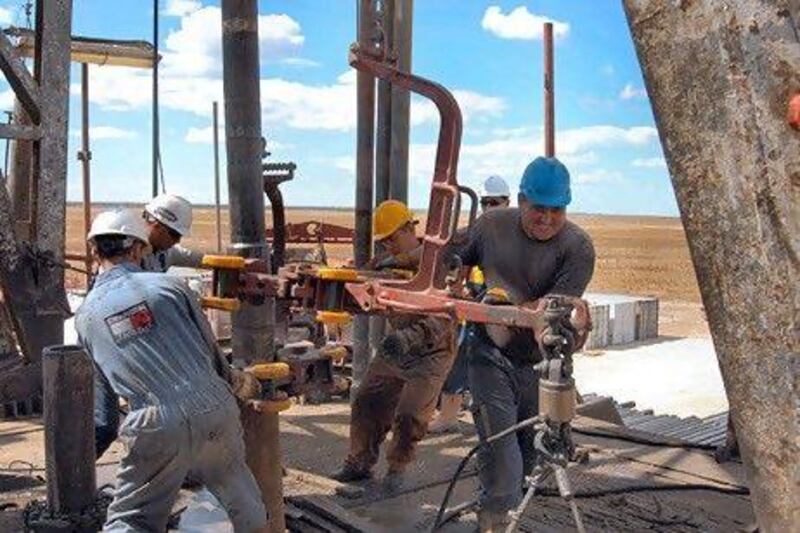Recent events in Kazakhstan seem at first sight reminiscent of last year's Arab Spring revolutions: an oil-rich state, undergoing rapid economic growth and modernisation, is confronted by unrest that takes a long-term autocratic leadership by surprise. Is this Tripoli on the Caspian?
What's the alternative?:
Energy Join The National as it explores alternative to fossil fuels. Learn more
Kazakhstan is an increasingly key player in global oil markets. It has a substantial ethnic Russian minority and a large, sparsely-populated territory, and its mineral wealth includes not only oil and gas but also coal and uranium, of which it is the world's largest producer. Since the break-up of the Soviet Union, it has maintained a skilful diplomatic balance between Russia, China and the West.
Most of its oil exports pass through Russia, but it has also opened a pipeline to China. Oil companies from all its major partners are heavily represented, with western companies leading the development of its three largest fields, of which Kashagan is the world's biggest discovery of the past three decades.
These three giant fields pose huge technical and environmental challenges, with high pressures, toxic hydrogen sulphide and the ecological sensitivity of the north Caspian Sea. Kazakhstan needs foreign help to develop them but has squeezed the companies hard, extracting higher government stakes, taxes and fines without scaring off foreign investors altogether.
With production set to soar by 1 million barrels of oil per day by 2020, Kazakhstan will be one of the four key contributors to non-Opec production gains, with Brazil, Canada and the US. Oil analysts, jumpy about political stability after the revolutions in Libya and elsewhere, have been watching recent disturbances carefully.
Since May last year, 19 people have died in a string of bombings and shootings around the oil centres of Aktobe and Atyrau in western Kazakhstan. This terrorism may be linked to extremists in the north Caucasus and to more conservative ethnic Kazakh immigrants from Turkmenistan and Uzbekistan.
Also last May, a more serious threat arose as 15,000 oil workers went on strike in several western towns, demanding better pay and working conditions. With the stoppage costing the government some US$356 million (Dh1.3 billion), concessions were made.
Only employees in the town of Zhanaozen continued the stoppage - and 1,000 were sacked. On December 16, as nationwide celebrations of 20 years of independence were beginning, state security forces cracked down violently on alleged rioters. Officially, 16 people were killed and about 100 injured; the true figure may be considerably higher.
When Nursultan Nazarbayev, the president, fell ill in July, his son-in-law, Timur Kulibayev, was strongly indicated to be the prospective successor. A billionaire businessman described as the "ultimate controller of 90 per cent" of the Kazakh economy, Mr Kulibayev was head of Kazakhstan's sovereign wealth fund, which owns one of the strike-hit oil companies.
After the deadly riots, and accused of mishandling the strike, his father-in-law sacked him. This is not the first time Mr Kulibayev has fallen out of favour; he may well return again - but the succession to the president, 71, has become less clear, concerning investors.
Tolstoy, who observed peasant famines along the Kazakh frontier in 1873, might have observed that all unhappy countries are unhappy in their own way. In the short term, Kazakhstan's unrest is the product of local pressures and should not be simplistically compared with Middle East discontent.
But in the longer term, the energy-rich former Soviet states - Kazakhstan, Azerbaijan, Russia, Turkmenistan and Uzbekistan - have to tackle difficult issues of corruption, inequality and the transition of power.
Events in Kazakhstan have made matters cloudier in the short term; the question is whether the leadership in Astana, the capital, takes heed.
Robin Mills is the head of consulting at Manaar Energy, and author of The Myth of the Oil Crisis and Capturing Carbon
twitter: Follow our breaking business news and retweet to your followers. Follow us





